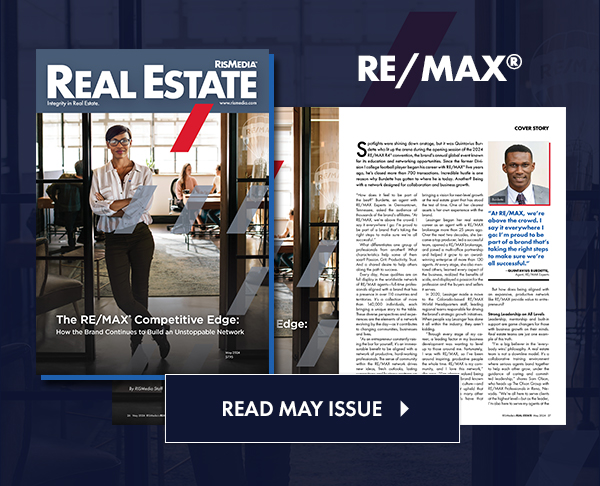 If being connected 24/7 was supposed to make our lives easier, the business world didn’t get the memo. Most American professionals just can’t shake the end-of-the-day feeling that they didn’t get enough done. So day after day, they find themselves responding to work e-mail on their smartphones right up until their head hits the pillow. Sound familiar? There is good news, says Jason Womack: By implementing a few small changes, you can get more done in less time—which not only staves off burnout, but leaves more time for doing what you love.
If being connected 24/7 was supposed to make our lives easier, the business world didn’t get the memo. Most American professionals just can’t shake the end-of-the-day feeling that they didn’t get enough done. So day after day, they find themselves responding to work e-mail on their smartphones right up until their head hits the pillow. Sound familiar? There is good news, says Jason Womack: By implementing a few small changes, you can get more done in less time—which not only staves off burnout, but leaves more time for doing what you love.
“When the pressure is on to do more and more with less and less, you want what you do to really count,” says Womack, a workplace performance expert, executive coach, and author of the new book Your Best Just Got Better: Work Smarter, Think Bigger, Make More (Wiley, February 2012, ISBN: 978-1-118-12198-6, $24.95). “Burning through your to-do list more efficiently lets you go after bigger and better opportunities, sure, but the real reason you want to do it is so you’ll have time for what brings you joy.
“You do what you have to do so you can do what you want to do,” he adds.
While Womack’s book zeroes in on strategies, tactics, tools, and processes to help readers consistently and incrementally improve their performance at work, he insists he is not some kind of “productivity nut job.” He’s just gung-ho about teaching us how to get more done, on time, with fewer resources and less stress—so that we can spend our evenings walking the dog, having a beer with friends, or reading a good book.
“It’s not about how hard you’re working,” adds Womack. “There are plenty of very hardworking people who aren’t as productive as they could be because of the way they manage their day.”
Read on for four essential good habits, excerpted from Your Best Just Got Better, you can develop to become more productive and less stressed at work:
Keep your BlackBerry out of bed. Womack writes about a client who listed “Check e-mail on BlackBerry (in bed)” as part of his daily morning routine. Note that he didn’t do anything about those e-mails while still in bed. He waited until he was commuting to work (he had a 40-minute train ride to the office each day) to start taking action. Then, he said, he rushed through his morning worrying about the e-mails he had read in bed.
“Together, he and I designed a five-day experiment during which period he would leave his mobile device in another room and use an alarm clock to wake up instead of his phone,” says Womack. “He would shower, dress, eat breakfast, and then check e-mail on his train ride to work. Initially, he expressed concern that he might miss the ‘thinking about what I have to think about’ time he had built in to the early part of the day, but he was willing to give the experiment a try.
“When I called him the following week, he had good news,” Womack continues. “The experiment had worked. He was less stressed and was using his morning more productively. This change in his routine gave him a higher quality of life with less stress and increased productivity—one he didn’t know was possible without falling behind in his work.”
Always be prepared for “bonus time.” This is a great strategy for increasing productivity. Bring small chunks of work with you wherever you go. Then, while waiting for a meeting to start or for a delayed flight to depart—Womack calls these unexpected blocks of free time “bonus time”—you’ll be able to reply to an e-mail or make a phone call. In other instances, you might have enough time to review materials for another meeting or project you are working on. If you’re prepared, you can also confirm appointments, draft responses, or map out a project outline.
“I can promise you that sometime during the next month, someone is going to arrive late for a meeting with you, cancel a meeting, or otherwise keep you waiting,” says Womack. “When that inevitably happens, you can look over your to-do list and pick something—anything—to work on.”
Change how you manage e-mail. The moment you click on your inbox, your focus goes and your stress grows, as you proceed to delete, respond, forward, and file the messages you find there. You see names and subject lines and suddenly your mind starts racing; all you can think of are the latest projects, the “loudest” issues, and the high-priority work that shows up. If you’re not careful, all you’ll do all day is manage your e-mail.
Rather than simply flag e-mails that require action, use the subject lines to catalog and organize them, suggests Womack. For example, you might put “Follow-up Call” in the subject line of an e-mail about a meeting you just had with a client. Also, don’t look at your e-mail unless you have a block of time to devote to prioritizing them and responding to them. When you are going through your e-mail, use subject lines to catalog them and organize them so that you’ll easily be able to go back to less urgent e-mails later on.
Identify the VERBS that need attention. (And here’s a hint: Smaller is better.) Organize your to-do list by verbs in order to manage your productivity in terms of action, delegation, and progress. Actions such as call, draft, review, and invite are things that you can do, generally in one sitting, that have the potential to move the project forward one step at a time.
“If your to-do list has ‘big’ verbs—by which I mean verbs that are mentally demanding or longer term in nature such as plan, discuss, create, or implement—replace them with action steps to just get started,” says Womack. “That is, pick ‘smaller’ verbs, by which I mean verbs describing tasks that are easier to start and faster to finish. This will save you time and reduce the sense of overload you’re feeling.”
“We all want to enjoy what we do every day,” says Womack. “We want to get better and better, both on the job and off, and yet, many people are too overwhelmed to make the key changes that will help them do so. There is no reason to remain mired in frustration and struggling to catch up. With just a few key changes, you can work in a way that feels really good—and spend your after-work life doing things that feel even better.”
Jason W. Womack, MEd, MA, provides practical methods to maximize tools, systems, and processes to achieve quality work/life balance.
For more information, visit www.womackcompany.com.










